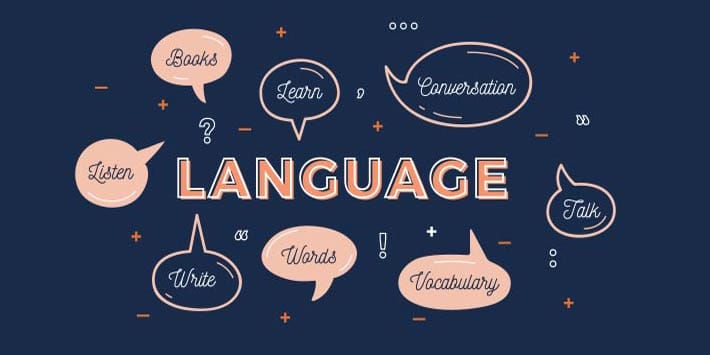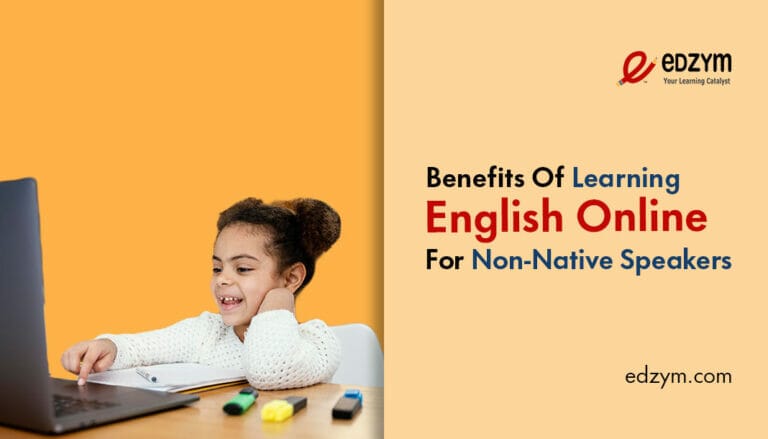Speak Like a Native: Unlocking Fluency with Language Lessons
Have you ever wondered how some people seem to effortlessly speak a foreign language as if it were their mother tongue? Despite learning a language in school or using language learning apps, many people still struggle with fluency and confidence when communicating with native speakers.
The truth is, mastering a language goes beyond just memorizing vocabulary and grammar rules. It requires exposure to authentic language use, cultural understanding, and practice with real-life situations. That’s where language lessons come in – they provide a structured and personalized approach to learning a language, helping students improve their speaking, listening, and comprehension skills.
In this article, we’ll explore the stages of learning a new language and how to become a fluent speaker like a native.
Stages of Learning a New Language
Learning a new language is a process that involves several stages, regardless of whether it’s English or any other language.
Here are the basic stages of language learning:
Stage 1: Preproduction (Complete Beginner)
The preproduction stage, also known as the complete beginner stage, is the first stage of language learning. At this stage, learners have little or no knowledge of the language they are learning. They may be able to recognize a few words or phrases but cannot speak or produce any language yet.
The focus of this stage is on introducing basic vocabulary and sentence structures, as well as developing listening and comprehension skills. Learners may use visual aids such as pictures, videos, or gestures to understand meaning, and may also rely on translation tools or bilingual dictionaries. The goal of this stage is to build a foundation for further language development and increase learners’ confidence and motivation to continue learning.
Stage 2: Early Production (Baby Talk)
The Early Production stage, also known as the “Baby Talk” stage, is the second stage of language learning. At this stage, learners have acquired some basic vocabulary and sentence structures and can produce short, simple sentences. Communication is limited, and learners may rely on memorized phrases and common expressions to express their thoughts. Errors in grammar and pronunciation are common, but learners are able to understand simple instructions and questions.
The focus of this stage is on building vocabulary, developing basic grammar skills, and practicing communication in real-life situations. Teachers may use dialogues, role-playing, and other interactive activities to help learners build their language skills and gain confidence in speaking. The goal of this stage is to move learners from passive comprehension to active communication and to prepare them for the next stage of language development.
Stage 3: Speech Emergence (Sensible conversation)
The Speech Emergence stage is the third stage of language learning, where learners can communicate in simple sentences and engage in sensible conversation. At this stage, learners have acquired a wider range of vocabulary and grammar structures and can understand more complex instructions and questions. They may still make errors in grammar and pronunciation but are able to self-correct and communicate more fluently.
The focus of this stage is on building speaking and listening skills and developing an understanding of the language’s culture and customs. Teachers may use group discussions, debates, and project-based learning activities to encourage learners to express their opinions and ideas in the language they are learning. The goal of this stage is to develop learners’ confidence in speaking, increase their comprehension skills, and prepare them for the next stage of language development.
Stage 4: Intermediate Fluency (More Fluent)
The Intermediate Fluency stage is the fourth stage of language learning, where learners become more fluent and can communicate in a wider range of situations. At this stage, learners have acquired a broader range of vocabulary and more complex grammar structures, allowing them to express themselves more accurately and naturally. They are able to understand and participate in conversations on a variety of topics, and can express their opinions and thoughts with greater depth and detail.
The focus of this stage is on developing reading and writing skills, as well as cultural understanding, which is crucial for communicating effectively in the language. Teachers may use authentic materials such as news articles, literature, and films to help learners expand their vocabulary and develop reading and writing skills. The goal of this stage is to develop learners’ ability to use the language in a variety of situations, including professional and academic contexts.
Stage 5: Advanced Fluency (Like Native Speaker)
The Advanced Fluency stage is the final stage of language learning, where learners can communicate with near-native fluency and accuracy. At this stage, learners have a deep understanding of the language’s nuances and can express themselves with ease in a variety of situations. They have a vast vocabulary and are able to use complex grammar structures with precision. They have a high level of comprehension, able to understand even the most subtle nuances of the language. The focus of this stage is on developing the ability to use the language in a variety of contexts, including academic and professional settings. Teachers may use challenging materials such as academic articles, research papers, and specialized texts to help learners further develop their language skills.
The goal of this stage is to achieve near-native fluency and accuracy, allowing learners to communicate effectively and confidently in any situation, and to fully engage with the culture and customs of the language they are learning.
Become a Fluent Language Speaker
Becoming a fluent language speaker requires dedication, effort, and patience. One of the most important things to do is to practice consistently, whether it be through speaking, listening, reading, or writing in the language. Immersing oneself in the language’s culture by watching movies, listening to music, and interacting with native speakers can also help in language acquisition.
Let’s talk about key points to consider while starting to become a fluent speaker of any new language:
Listening
Listening is an essential component of learning a new language, regardless of the language being studied. Listening to native speakers provides learners with exposure to the language’s natural rhythm, intonation, and pronunciation. It also helps learners to develop their listening comprehension skills, allowing them to better understand and process the language when spoken.
Additionally, listening helps learners to expand their vocabulary and learn new phrases and expressions in context
Speaking
Speaking is an essential component of learning a new language, as it allows learners to put their knowledge of the language into practice and develop their ability to communicate effectively. Speaking practice helps learners to become more confident in their ability to use the language, and to develop their pronunciation, intonation, and grammar skills. It also provides opportunities to interact with native speakers, which is essential for improving comprehension and understanding of the language.
Reading
Reading is a crucial component of learning a new language, as it allows learners to improve their vocabulary, comprehension skills, and grammar knowledge. Reading materials in the target language provides learners with exposure to a variety of writing styles, genres, and topics, which can help them to expand their language skills and cultural understanding. Reading also helps learners to develop their pronunciation skills, as they are able to see how words are spelled and pronounced in context.
Writing
Writing is an essential component of learning a new language, as it allows learners to develop their skills in grammar, vocabulary, and sentence structure. Writing practice helps learners to reinforce what they have learned through reading, listening, and speaking, and allows them to practice applying the rules and patterns of the language. Writing also helps learners to build their confidence in using the language, as it provides them with opportunities to express themselves in a controlled and structured environment.
Find a Language Exchange Partner
Finding a language exchange partner can be an excellent way to accelerate language learning and improve communication skills in a new language, such as English.
A language exchange partner is typically someone who is fluent in the target language and wants to practice speaking another language with a native speaker. This provides the opportunity for both learners to practice their language skills in a conversational setting and to receive feedback on their pronunciation, grammar, and vocabulary. Language exchange partners also provide the opportunity for learners to gain cultural insights and learn more about the customs and traditions of the language they are learning. This can be especially valuable for learners who plan to use the language in a professional or academic setting.
Use of Technology
Technology has revolutionized language learning by providing learners with access to a wide range of resources and tools that can help them to achieve fluency in a new language. One of the most effective ways to use technology to learn a new language is through language learning websites. These websites offer a range of features and resources, such as interactive lessons, language exercises, and audio and video materials.
Focus on Grammar
It is very important to learn English grammar. Firstly, grammar provides a foundation for effective communication in the language. It allows learners to understand the rules and patterns that govern the language, such as verb conjugation, noun genders, and sentence structure. By mastering these rules, learners can create sentences that are grammatically correct and make sense to native speakers.
Secondly, grammar is essential for improving accuracy in language production. By understanding grammar rules, learners can avoid common mistakes and errors, such as incorrect word order or verb tense. This can be especially important for learners who plan to use the language in a professional or academic setting.
Get a Mentor
Getting a mentor while learning a new language can be incredibly beneficial for a number of reasons. Firstly, a mentor can provide you with guidance and support throughout your language learning journey. They can offer you personalized advice on how to improve your language skills, identify areas where you may be struggling, and help you to set achievable goals.
Edzym’s Language Lessons
Edzym offers language learning lessons in English, French, Arabic, Malayalam, Tamil, and Hindi. With a team of experienced and qualified tutors, students can expect engaging and interactive lessons tailored to their individual needs and proficiency level. Edzym’s Language Learning Lessons use a communicative approach that emphasizes speaking, listening, reading, and writing skills. Whether you are a beginner or advanced learner.
Our courses are designed to help you improve your language proficiency in a fun and enjoyable way. Edzym’s tutors use a variety of materials and resources, including multimedia content, to keep lessons engaging and interactive. Students can also benefit from personalized attention and feedback, as well as flexible schedules that fit their busy lifestyles.
English Language Tuition
Edzym offers online English Language Tuition classes that cater to students of all proficiency levels, you can learn English online with us. The courses are designed to help students develop their reading, writing, listening, and speaking skills in a structured and engaging manner. Edzym’s online English Language Tuition classes cover a wide range of topics, from grammar and vocabulary to pronunciation and conversation. With experienced and qualified tutors, students can expect high-quality instruction and personalized attention to their learning needs. The online classes are conducted in a virtual classroom setting, which allows for flexible scheduling and convenient learning from anywhere in the world.
Edzym’s online English Language Tuition classes also provide students with access to a range of online learning materials, including practice exercises and multimedia content, to supplement their learning.
French Language Tuition
Edzym offers comprehensive French language tuition classes online, providing students with a unique and engaging learning experience. With a team of highly qualified and experienced French language tutors, The classes cater to students of all levels, from beginners to advanced learners.
The classes are designed to help students develop their language skills in all areas, including speaking, listening, reading, and writing. Using a communicative and interactive approach, Edzym’s tutors help students practice their language skills through a variety of activities, including role-plays, discussions, and games.
Hindi Language Tuition
We offers excellent Hindi language tuition classes online, providing students with a unique and engaging learning experience. The classes are conducted by highly qualified and experienced Hindi language tutors who cater to students of all levels, from beginners to advanced learners. The classes are designed to help students develop their language skills in all areas, including speaking, listening, reading, and writing.
Arabic Language Tuition
We also offer exceptional Arabic language tuition classes online, providing students with a unique and engaging learning experience. The classes are conducted by highly qualified and experienced Arabic language tutors who cater to students of all levels, from beginners to advanced learners. The classes are designed to help students develop their language skills in all areas, including speaking, listening, reading, and writing. You can learn Arabic online with us and become a fluent at speaking Arabic in just a matter of months.
Malayalam Language Tuition
Our Malayalam language tuition class provides students with a unique and engaging learning experience. The classes are conducted by highly qualified and experienced Malayalam language tutors who cater to students of all levels, from beginners to advanced learners. Edzym is one of the best website to learn Malayalam online
Tamil Language Tuition
Edzym offers Tamil language tuition classes online, providing an excellent opportunity for anyone who wants to learn this beautiful language. The classes are designed to cater to all levels of learners, from beginners to advanced speakers.
The experienced tutors are native speakers who provide personalized attention to each student, ensuring that they receive a comprehensive understanding of the language. The online platform is user-friendly, allowing students to interact with the tutors in real-time, and access course material, assignments, and resources easily.
Conclusion
speaking a new language fluently like a native speaker can be challenging, but with the right approach and dedication, it is achievable. The first step is to set realistic goals and commit to regular practice, which involves speaking, listening, reading, and writing in the language. Along the way, students may face various barriers, such as lack of motivation, difficulty in pronunciation, grammar rules, and unfamiliar vocabulary. However, these barriers can be overcome by seeking help from language tutors or participating in language exchange programs.
Learning a new language involves several stages, including the initial stage of learning basic vocabulary and grammar, followed by the intermediate stage of building on this foundation and developing conversational skills, and finally, the advanced stage of fluency and mastery of the language. Patience, perseverance, and consistent effort are key to success in language learning. With these strategies in mind, anyone can become proficient in a new language and enjoy the benefits of enhanced communication, cultural awareness, and personal growth.








